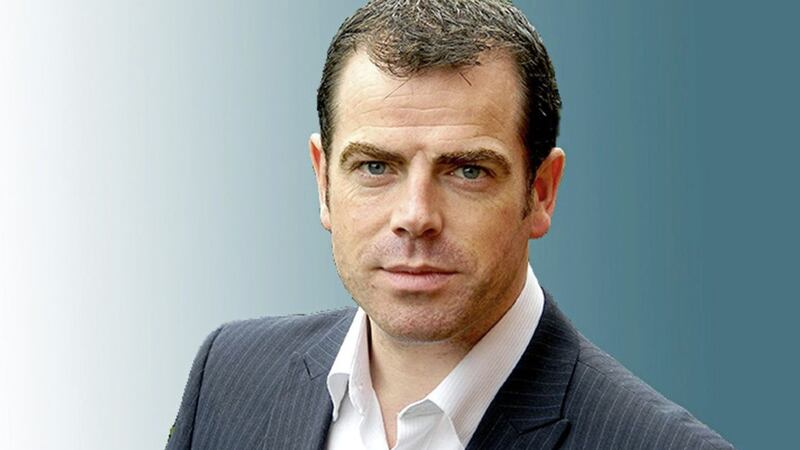Electoral statistics have caught up with social demographics. That’s the reality of the assembly election results.
Numbers in the assembly now mimic numbers on the ground. Sinn Féin and the SDLP have 43.3 per cent of seats. Designated ‘unionists’ (DUP, UUP, TUV and independent) have 44.4 per cent of MLAs. Remaining assembly seats – 12.3 per cent – are held by ‘other’ parties (Alliance, Green, PBP). That outcome broadly reflects society’s current make-up.
A long historical perspective is needed. Irreversible social change has already happened here. It just hasn’t been previously manifested in politics. Change is still working through the nature and structure of society, including equal representativeness in the public sector and equality agendas in public policy. They too must catch up. And they will. The trajectory is set.
This election confirms the 2011 census results and trend lines. Everyone – on all sides - should relax into that reality. This is now a time for patience and prudence. Hard talking needs to be replaced by healing language. Greater generosity must be pro-actively pushed into our public discourse. Stabilised partnership is needed once again.
The period ahead will be framed by two factors. Demographical change - which politics largely can’t influence. And attitudinal change – which politics can heavily influence.
First, take demographical change.
Writing here in January 2016, I highlighted how the indigenous population designating as ‘British only’ citizens stood at 41 per cent in 2011 – an ever-shrinking minority. The majority of ‘under-65’ citizens designate themselves as either ‘Northern Irish’ or ‘Irish’ – the latter increasing among younger people. This ‘island of Ireland’ identity is instructive for future constitutional considerations. And I suggested it posed big questions:
“So, have republicans even properly considered how the words and imagery of Easter Rising commemorations are impacting upon Presbyterians from Parkgate or Methodists from Markethill?
Are unionists capable of accepting an unstoppable new chapter, and turning the page with confidence rather than being constantly constrained by the most negative voices?
What pro-active role will the Irish and British governments play in the developing context? Positive and facilitative? Or conservative and unhelpful?
How can the civil service and public service be re-engineered towards enhanced delivery and strategic effectiveness for a new context?
What more is needed to ensure full representativeness in our now fully accountable policing service?
And why have twice as many people (well over 7,000) died by suicide and by alcohol-related deaths since 1998, than were killed in total during the conflict? (Three-to-four times more likely in deprived areas.)”
Such questions still stand. Rather than being fixated or provoked by our respective immaturity or individualism, we – as a society - need to start grappling with these big-picture ideas to inform the policies and strategies for future partnership on this island. Now is the time, not least with imminent Brexit instability.
Second, take attitudinal change. The tone of the last few months, indeed recent years, has become trenchantly divisive. That must now be transformed.
Generosity must become the foundation of progress. Let’s start by losing the labels we use and abuse for each other (the profanities as well the political). Our choice of language both reflects, and shapes, our attitudes to others. Our words should be about constructing relationships, not closing mindsets.
Is it too much to ask that we begin regarding each other, first and foremost, as citizens? And if we start recognising our respective citizenship, can we then start exercising it?
For instance, is it consistent for anyone to proclaim the rule of law (and pro-Brexit majoritarianism) within a United Kingdom-wide consititutional framework, whilst demanding arbitrary exemptions to social equality in this tiny jurisdiction for apparently religious or moral justifications? If the issue is constitutionally-framed rule of law, surely consistency is required?
Is it consistent for anyone to protest on the streets about the human rights of citizens from Derry imprisoned in Maghaberry, whilst failing to protest on the same streets over outrageous attacks on young committed public servants from Derry who happen to work in the PSNI - instead of, say, the NHS? If the issue is human rights, surely consistency is required?
New thinking needs elevated with renewed courage. Our attitudes must reach higher altitudes, soaring far above the cliché or the gauche, the learned labels and shallow slogans of generational conflict. Genuine trust is now key.
This is yet another opportunity to turn the page on our past of pain, to write a new chapter of partnership with generosity – one based on transformational attitudes for a changed reality. History is posing big questions for politics. But we all hold the answers.








